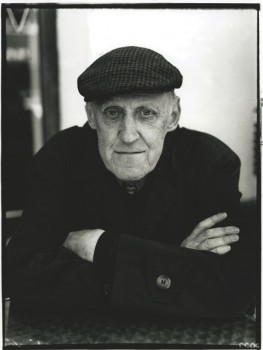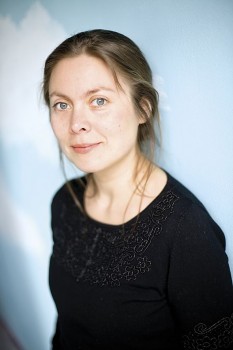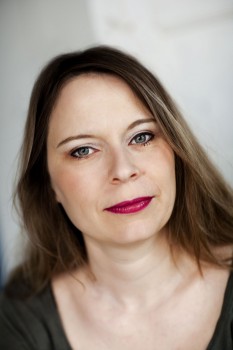Search results for "2011/04/2009/10/2010/05/song-without-words"
Mother-loves
31 March 1994 | Archives online, Fiction, Prose
Extracts from the novel Ihon aika (‘The time of the skin’, WSOY, 1993). Introduction by Suvi Ahola
In the hospital they stare at us, enquiringly, as if we are abandoning her. They look in turn at our mother’s half-conscious, ulcerous body, at the nurse who, curling her lip, cuts mother’s knickers, housecoat and apron off her, at us, the exhausted ones, who are now only at the beginning of our real work. They fill in their forms and ask their official questions; they do not know how anguished and relieved we shall be in a moment when we may leave our mother to them, that ironically smiling, wounded woman who is still, with her last strength, attempting to kick the nurse who is pouring warm water on her bloody feet.
I gaze at mother’s battered body with something like greed; I feel the same kind of curiosity toward this shocking sight as when I was four and we were in the bathroom together. I was shy, I tried to spy on mother’s fleshy body, her luxuriantly curving skin, through the mirror, but I was always left with the feeling that I had seen too little, I had been able to understand only a small part of what my eyes had registered. More…
Sanna Tahvanainen & Sari Airola: Silva och teservicen som fick fötter [Silva and the tea set that took to its feet]
13 January 2012 | Mini reviews, Reviews
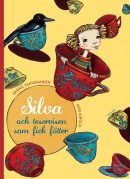 Silva och teservicen som fick fötter
Silva och teservicen som fick fötter
[Silva and the tea set that took to its feet]
Kuvitus [Ill. by]: Sari Airola
Helsingfors: Schildts, 2011. 32 p.
ISBN 78-951-50-2053-6
€ 21.20, hardback
Silva ja teeastiasto joka sai jalat alleen
Suomennos [Translation from Swedish into Finnish]: Jyrki Kiiskinen
Helsinki: Schildts, 2011. 32 p.
ISBN 978-951-50-2054-3
€ 21.20, hardback
Sari Airola’s ability to depict different emotions makes her one of the most interesting Finnish illustrators of children’s books. Airola has long lived in Hong Kong and one can often sense an oriental spirit in her work. In this book, she makes use of Asian textile printing plates to enliven the surfaces of the images. The subject of this debut children’s book by Tahvanainen (born 1975), who is also a poet and novelist, evokes empathy with family situations that deviate from the norm. Silva lives in a big house with her mother, an isolated control freak and migraine sufferer. When her mother suffers an episode, Silva is unable to establish any contact with her and feels insecure. Although the text is allegorical, the book’s message, which concerns a parent’s caring responsibilities and a child’s need to be loved, remains accessible to children. Once the migraine attack is over, the mother goes out to look for Silva; mother and daughter are reconciled when Silva, at last, puts her fears into words.
Translated by Fleur Jeremiah and Emily Jeremiah
The day of mourning
6 November 2014 | Fiction, Prose
Extracts from the novel Katedraali (‘The cathedral’, Teos, 2014). Introduction by Mervi Kantokorpi
I am here now, at this funeral; I’m sitting on a puffy rococo chair which stands in the corner of this large living room – hall – on a Berber rug, one of a series of four pieces of furniture. The fourth is a curly-legged table, painted matt white. I wriggle like anything, trying to rid myself of my too-tight shoes. Fish thrash their tails in the same way. The lady in the dry cleaner’s told me she hates fish. She said that clothes that smell of fish and are brought into her shop make her shake with loathing but also bring her satisfaction because she can wash the awful stench away.
My shoes are impossibly small. They pinch my feet worse every moment. My back aches, too, despite the painkillers. You can’t swallow pills forever, so I just try to find a better position and put up with it. Finally my shoes leave my feet. I kick them underneath the table so that they can’t be seen. I can breathe again. In my shoes I felt as if I were sinking under the ground.
My father once showed me the Stephansdom catacombs. Thousands of people were buried here, before that, too, was forbidden by someone, he said. More…
Elina Brotherus & Riikka Ala-harja
The passing of time
2 March 2015 | Extracts, Fiction, Prose
In 1999 the Musée Nicéphore Niépce invited the young Finnish photographer Elina Brotherus to Chalon-sur-Saône in Burgundy, France, as a visiting artist.
After initially qualifying as an analytical chemist, Brotherus was then at the beginning of her career as a photographer. Everything lay before her, and she charted her French experience in a series of characteristically melancholy, subjective images.
Twelve years on, she revisited the same places, photographing them, and herself, again. The images in the resulting book, 12 ans après / 12 vuotta myöhemmin / 12 years later (Sémiosquare, 2015) are accompanied by a short story by the writer Riikka Ala-Harja, who moved to France a little later than Brotherus.
In the event, neither woman’s life took root in France. The book represents a personal coming-to-terms with the evaporation of youthful dreams, a mourning for lost time and broken relationships, a level and unselfpitying gaze at the passage of time: ‘Life has not been what I hoped for. Soon it will be time to accept it and mourn for the dreams that will never come true. Mourn for the lost time, my young self, who no longer exists.’
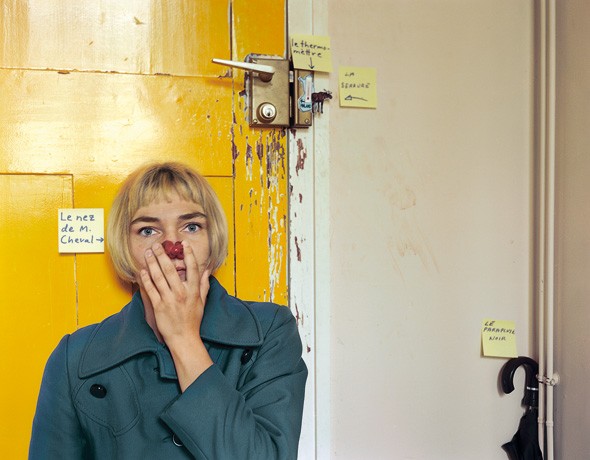
1999 Mr Cheval’s nose
Taken by surprise
In her fifth collection of poems, Pauliina Haasjoki explores night flights, water, islands, sandy beaches where time is found stratified in stones and fossils. Interview by Teemu Manninen
Poems from Aallonmurtaja (‘Breakwater’, Otava, 2011)
Night flight
Man cannot hide in the night, his desire will betray him.
Man turns toward the lights, light sparkles as though it were close at hand
even if it is far away.
Lights, which offer themselves like jewels to the one who sits in the plane above them, are already
in their viewers’
eyes even if they have only just begun to stream from their source. A city-jewel swaying
in the black night air.
A solitary light on the surface of an island. Seen close up it is a soft-lit lamp
which casts light only on the table and the faces around it,
but from above, at a distance of kilometres, it is an immediate spot, a straight line that
aims at the viewer
and pierces her. A fierce light-beam.
Daddy dear
30 June 2004 | Archives online, Fiction, Prose
Extracts from the novel Vanikan palat (‘Pieces of crispbread’, Otava, 2004). Interview by Soila Lehtonen
Dad’s at the mess again. Comes back some time in the early hours. Clattering, blubbing, clinging to some poem, he collapses in the hall.
We pretend to sleep. It’s not a bad idea to take a little nap. After a quarter of an hour Dad wakes up. Comes to drag us from our beds. Crushes us four sobbing boys against his chest as if he were afraid that a creeping foe intended to steal us. We cry too, of course, but from pain. Four boys belted around a non-commissioned officer is too much. It hurts. And the grip only tightens. Dad whines:
‘Boys, I will never leave you. Dad will never give his boys away. There will be no one who can take you from me.’ More…
Opera of the everyday
5 November 2010 | Reviews
A plaza in Seville suddenly turns into a modern shopping mall in the new collection of poetry by Saila Susiluoto (born 1971). In Carmen (Otava, 2010) Susiluoto combines the elements of Georges Bizet’s eponymous 1875 opera – popular folk tradition and intense emotions.
The Carmen of these poems is a gypsy, a stranger, a femme fatale, a fiery augury of death. These terse poems combine a narrative continuum, a love story, the triangle drama of the opera, and Susiluoto’s own, distinctive visually flowing style, which is both fresh and familiar.
Her debut collection Siivekkäät ja Hännäkkäät (‘The Winged and the Tailed’, 2001) seems to exist within the frame of a narrative painting or a film. In this suburban story of human relations, she is both an individual growing in passions and her lover’s deserter. More…
Asking for more
14 April 2010 | Fiction, poetry
The heroines in Vilja-Tuulia Huotarinen’s new collection, Iloisen lehmän runot (‘Happy cow poems’, 2009), are timeless creatures, mythical and archaic, and yet our contemporaries, living their lives alongside us (see Ruminations)
Let the cows out on Monday
and they’ll enter the forest, wander far
aim for the waterfalls, the hole in the rock and down the precipice.
The dead come back along our the road to our yard:
Rebecca, Isolde, Rosamunda.
Allison, Eulalia, Euphrosyne.
Not as ghosts but as old friends.
Whom will they, the wingless ones, protect here?
A lean lass, a lean lass. More…
Nothing but light
30 December 2003 | Fiction, poetry
Prose poems from Huoneiden kirja (‘A book of rooms‘, Otava, 2003)
The ladies’ room
Behind the shining mirror twin girls are squealing, they disappeared inside the walls long ago. They had plaits, red pompons, bad moods – all of them moulded and twisted by wire coathangers from the very start. They gouged the house full of passageways, they hollowed out the paper walls with silver christening-spoons. They disappeared between the stairs on the staircase, saying: evil’s a gateway onto a void with hundreds of gateways inside. Now they’re in this room, behind this mirror. Now the sun’s rising over the firtree-tops, creeping step by step higher towards the overarching sky. Inside us there are two hundred girl-embryos, the girls shout, they’re handicrafts fashioned by themselves like us: out of pearls, blood, splinters of mirror, it’s these we were made of. If you don’t find us, you’ll not sleep a single night. Until you do you’ll wander about the house, astray with each memory, until your hands are thinner than your words, the days slenderer than your hands. More…
Caravans of winds
30 June 1988 | Archives online, Fiction, poetry
Poems from three collections. Introduction by Kaija Valkonen
The river of death froze
It froze, the river of death, froze too the boat of death in the nights of the Winter War, in the Winter War's nights. The men shed blood, shed blood , and it froze, the river of death. In the nights of the Winter War, it froze, the river of death.
Day of mourning
For one day I’ve the right to mourn,
for one day I’ll shut the windows of the sky,
I’ll dismiss the blue,
I’ll raise a black sun to mark my mourning.
For one day I’ll wilt the flowers,
for one day I’ll silence the birds. More…

